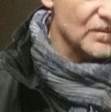Fabrizio Ulivieri's Blog, page 62
December 11, 2022
Actual sentences - Immanuel Kant: das höchste Gut
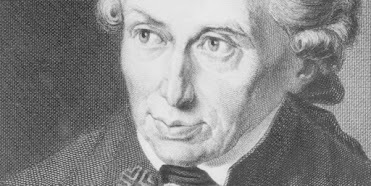
Today, more than ever, we need morals, we need to be inspired by the highest transcendency in terms of morals, we need to adequate our actions to a summum bonum that will lead our moral action because we postulate it putting our deeds under its agency.
We must follow what Kant expressed in clear and unequivocal words:
Wir sollen das höchste Gut (welches also doch möglich sein muß) zu befördern suchen (I:Kant, Kritik der praktischen Vernunft 225)
We should try to promote the highest good (which must therefore be possible after all).
December 10, 2022
I dubbi di Silvia sull'eredità morale del padre morto al ritorno delle vacanze
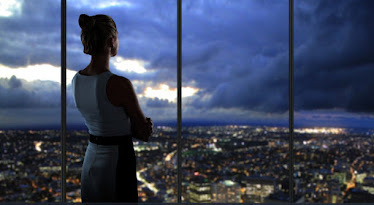
Dal capitolo XVIII del mio libro in progress "Essere mio padre"
Il ritorno a casa dopo le vacanze non fu indolore. Ritornare dalle vacanze non è mai indolore, perché il passaggio da uno stato in cui il dolore della vita quotidiana è momentaneamente sospeso e ridotto a livello di piacere pigro di esistere (il sole, la spiaggia, il caldo, il mare, il riposo...) di ritmi bassi e lenti, provoca un improvviso quanto indesiderato ritorno a quel dolore che pare infinito e frenetico di ogni giorno e ci procura spesso ansia, paura, smarrimento e depressione.
Soprattutto si incontrò improvvisamente gettata, dopo l’intervista di pochi mesi prima, in un mondo nuovo a cui non era usa, in cui tutti ora la cercavano per avere una parola su quel padre che di colpo era divenuto uno scrittore celebre, post-mortem. E lei essendo la figlia maggiore era reputata come la persona adatta a parlarne.
In questa situazione, si ritrovò appunto gettata alla fine delle vacanze, ora che era tornata a casa. E si ritrovò a fare il punto sui vantaggi e gli svantaggi, sulle gioie e sui dolori che si portava addosso in quel momento a causa del nome di suo padre che, una volta morto, aveva iniziato ad avere successo grazie a un libro e stava diventando famoso, cosa a cui non aveva mai pensato. E la tragedia di tutto questo era che non poteva dire quello che sentiva, perché niente di ciò che diceva avrebbe spiegato in quale eredità l'aveva gettata suo padre. Per capire cosa gli stava accadendo, bisognerebbe aver vissuto con lui come aveva vissuto lei, quando non era uno scrittore famoso, iconoclasta e rivoluzionario, come lo considerava ora la gente. Suo padre era suo padre e per sempre sarebbe stato lo stesso padre che aveva conosciuto quando era la sua figlia piccola e mai lo scrittore famoso che la gente di oggi voleva che fosse.
Ma suo padre a pensarci bene aveva sempre avuto una perfetta idea di quello che avrebbe potuto essere, inteso come un perfetto adeguamento fra ciò che cercava e ciò che era in realtà. E solo ora Silvia capiva che quello era la scrittura, divenire un giorno uno scrittore a tempo pieno. Ma quel perfetto adeguamento fra la sua volontà e l’oggetto della sua volontà si compiva ora, ora che era morto.
Che senso aveva? Si chiedeva.
Il senso di un sacrificio in vita che finalmente a un certo punto, quando era già oltre la dimensione del mondo sensibile, trovava completamento. Una beffa? O una specie di transustanziazione di un processo che dovesse in qualche modo compiersi oltre i limiti del finito come il perdurare, impossibile da dissolvere, di una convinzione terrena?
Era stato quello il senso del suo sacrificare la vita ad un ideale che, lui in vita, mai si era realizzato? E non veniva a depositare ora il frutto di quel sacrificio (di quella transustanziazione) nelle mani di lei totalmente impreparata a quella eredità che il padre le aveva lasciato?
December 8, 2022
Actual sentences - Ričardas Gavelis: a fog of obedient, sickening fear
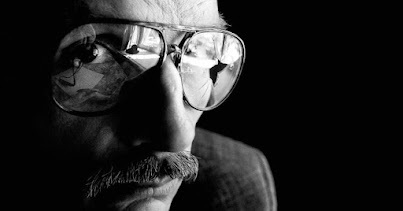
Today we want to present another very topical phrase. The phrase is by Ričardas Gavelis (1950 - 2002), author of one of the most famous Lithuanian novels, Vilniaus Pokeris. written in Vilnius between 1979-1987, first published in 1988.
There is a good English translation by Elizabeth Novickas.
Turbūt dar visai anksti, bet Vilnius tuščias. Vilnius kasdien vis tuštesnis – juo tuštesnis, juo didesnė gatvėse spūstis. Apmiręs miestas, o viršum jo kybo nuolankios, šleikščios baimės rūkas. Vilnius, kurį myliu, Vilnius, kuris esu aš pats, palaidotas tarsi Pompėja po lava, tarsi Atlantida po vandenimis. O mudu su Lolita esam šešėliai: gyvieji vilniečiai, ta skruzdžių minia, drumzlina upė, neklajoja vakaro gatvėmis, nešneka taip, kaip mes
"It's probably still early, but Vilnius is empty. Vilnius is getting emptier day by day - and the emptier it gets, the more congested the streets. The city is dead, and above it hangs a fog of obedient, sickening fear. The Vilnius I love, the Vilnius that is me, buried like Pompeii under lava, like Atlantis under the oceans. And Lolita and I are shadows: the living people of Vilnius, the crowd of ants, the murky river, are not wandering the evening streets, are not speaking as we do."
This sentence is in a way prophetic. During the so-called pandemic, if you were wandering along the street of Vilnius you simply had the same feeling. Above all at the beginning of this presumptive pandemic.
Silvia se pregunta sobre la herencia moral de su padre fallecido a su regreso de vacaciones

En esta situación completamente deprimente, se vio arrojada al final de las vacaciones, ahora que ya estaba de nuevo en su casa, haciendo un balance de las ventajas e inconvenientes, de los gozos y las penas que llevaba en aquel momento a causa del apellido de un padre que una vez muerto había comenzado a tener éxito gracias a un libro y se estaba volviendo famoso, cosa que el nunca había pensado. Y lo trágico de todo esto era que no podía decir lo que sentía, porque nada de lo que dijese serviría para explicar a qué herencia la había arrojada su padre. Para entender lo que le pasaba, se habría tenido que haber vivido con él como ella había vivido, cuando no era un escritor célebre, iconoclasta y revolucionario, como la gente lo consideraba ahora. Su padre era su padre y para siempre habría sido el mismo padre que ella había conocido cuando era su hija menor y nunca el célebre escritor que la gente hoy queria que fuera.
December 7, 2022
Píldoras de literatura española - el grupo del 98
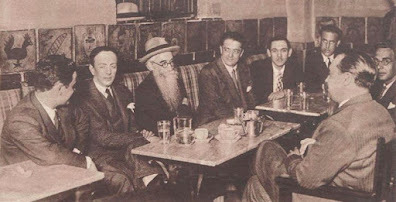
En estos tiempos de valores líquidos, de evaporación de principios, de absoluta dictadura del relativismo necesitamos certezas, y por eso vamos a buscar certezas en quienes se han planteado el problema del sentido de la vida, como valor primario de su investigar.
Es el caso del grupo del 98 en España porque compagina esta investigación con la búsqueda de la identidad del Estado, como vuelve a ocurrir hoy con la multipolaridad frente a el globalismo. Cuando hablamos del grupo del 98 nos estamos refiriendo a seis escritores: Miguel de Unamuno, Pio Baroja, Ramiro de Maeztu, José Augusto Trinidad Martínez Ruiz (más conocido por su seudónimo Azorín),
Ramón María del Valle-Inclán y Antonio Machado.Los temas principales del grupo 98 son dos: la reflexión sobre el sentido de la vida y que es España y que son los españoles. Nos fermeremos nuestra atencion sobre Miguel de Unamuno e mas tardes sobre Pio Baroja. Y vamos a hablar de ellos en las próximas "Pildoras"
December 3, 2022
Pills of Lithuanian Literature: Vincas Mykolaitis-Putinas - or the drama of poetry experienced in the Spirit of Time
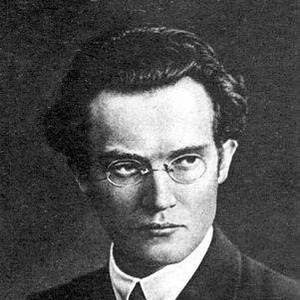
Can poetry bring to the point of making a man choose between a life dedicated to God and one dedicated te poetry? Can poetry get to the point where it becomes the drama of a man's own existence?
Yes, it can. Vincas Mykolaitis-Putinas devoted a long novel to this drama: Altorių šešėly (In the shadows of the altars). The novel was published in 1933.
Vincas Mykolaitis-Putinas (1893 - 1967) was a Lithuanian poet, writer and playwright. His most famous novel is "Altorių šešėly", a psychological novel.
The novel is about the life, feelings, and inner conflicts of Ludos Vasaris, a young priest. The work deals with many psychological problems: the priesthood, the search for a life path, and the freedom of the artist's personality. The crucial theme of the novel is: can the same person be both, a priest and a poet? No, it cannot because that will lead to schizophrenia.
The main character of the work is the intellectual Liudas Vasaris, who enters the priestly seminary and studies there for 6 years. And the novel is called psychological because the main character analyzes himself for many years, because he wants to know himself and perceive himself as a person, in order to understand who he really is (is he a priest or a poet?). In the end, many years later, Liudas gives up the priesthood because he realizes that he is actually a talented and renowned writer, playwright and poet.
Alongside this theme, another important theme runs parallel: how to become a person?
According to his novel, we become a person through
1) Family: strong authority of the father, mother, sister or brother. The dearest closest people help in every way, and encourage improvement.
2) Living environment (home environment: a rich library, many fine art paintings, music evenings, nature...
3) Friends
4) The authority of a famous person we are close to
Some quotes from Altorių šešėly:
“Juk kiekvienoje vietoje, kur mums tenka ilgiau pagyventi, mes paliekam savo širdies, savo sielos dalelę
"After all, in every place where we have to live longer, we leave a piece of our heart, our soul."
“Ar ne iš mėgstamųjų knygų pažįstame žmogų?”
"Don't we know a person from our favorite books?"
“Žmogus nešiojasi tik pusę savo sielos ir lieka tobulas tik suradęs ir pamilęs kitą, kuris turįs antrąją pusę. Dėl to mylėti galima tiktai vieną kartą, o tokia meilė esanti būtina ir amžina.”
"A person carries only half of his soul and remains perfect only after finding and loving someone who has the other half. That's why you can love only once, and this kind of love is necessary and eternal."
“Meilė tik vienokia tegali būti: sielų bendravimas.”
"There can only be one kind of love: the communication of souls."
“Tapai mediku, o pamatei, kad esi mėsininkas, tai mesk gydęs, nes imsi žmones pjauti. Taip pat ir su kunigyste.”
"You became a doctor, but you see that you are a butcher, so quit treating, because you will start cutting people. Likewise with the priesthood."
“Neišnyksta niekas, kas kartą yra buvęs.”
"Nothing disappears,, that has once been.”
“Gyvenime esti visokių situacijų ir visokių pareigų. Kartais tenka vienaip jausti, o kitaip kalbėti, veidu juoktis, o širdimi liūsti — ir atvirkščiai.”
"There are all kinds of situations and all kinds of responsibilities in life. Sometimes you have to feel one way and speak another way, laugh with your face and break your heart — and vice versa.”
“Yra žmonių, kurių vienintelis paskyrimas — puošti pasaulį ir daryti kitiems malonumą. [...] Jie bus gerai išauklėti, malonūs, turės geras manieras, bet absoliučiai niekam nenaudingi. Jie neturės jokių pareigų ir nedirbs jokio darbo. Nedarydami niekam naudos, jie nedarys niekam nei žalos. Ir į klausimą, koks tų žmonių buvimo pateisinimas, nerasi jokio atsakymo kaip vien tai, kad jie puošia pasaulį. Kai kas tokius žmones vadina visuomenės parazitais.”
"There are people whose only purpose is to decorate the world and give pleasure to others [...] They will be well-mannered, kind, have good manners, but absolutely useless. They will have no sense of responsibility and will not do any work. By not doing anything good to anyone, they will do no harm to anyone. And to the question, of what is the justification for the existence of those people, there is no answer other than the fact that they decorate the world. Some people call such people parasites."
Actual sentences - Vincas Mykolaitis-Putinas: the decorative people
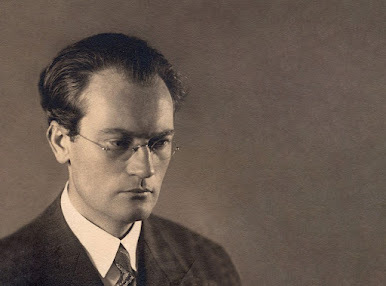
From today onward I start a new section in this blog. I will publish sentences of writers from the past that have a high significance for the present time we live in, as if they would have foreseen what one day would have surfaced ia n total and unquestionable way.
Here is a sentence from a Lithuanian writer, Vincas Mykolaitis-Putinas (1893 - 1967) poet, writer and playwright. His most famous novel is "Altorių šešėly" (In the shadows of the altars).
“Yra žmonių, kurių vienintelis paskyrimas — puošti pasaulį ir daryti kitiems malonumą. [...] Jie bus gerai išauklėti, malonūs, turės geras manieras, bet absoliučiai niekam nenaudingi. Jie neturės jokių pareigų ir nedirbs jokio darbo. Nedarydami niekam naudos, jie nedarys niekam nei žalos. Ir į klausimą, koks tų žmonių buvimo pateisinimas, nerasi jokio atsakymo kaip vien tai, kad jie puošia pasaulį. Kai kas tokius žmones vadina visuomenės parazitais.” ( Altorių šešėly)
"There are people whose only purpose is to decorate the world and give pleasure to others [...] They will be well-mannered, kind, have good manners, but absolutely useless. They will have no sense of responsibility and will not do any work. By not doing anything good to anyone, they will do no harm to anyone. And to the question, of what is the justification for the existence of those people, there is no answer other than the fact that they decorate the world. Some people call such people parasites."
The social vision of suffering in Coetzee or finding the root of that cause in the people around
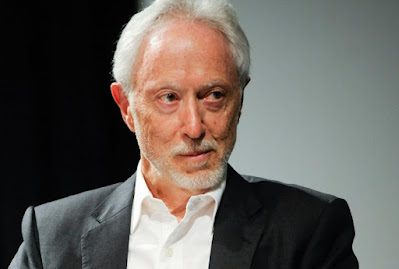
When you read J.M Coetzee, in quite many works (here we take into consideration Disgrace and Summertime) what hits or blows you is dolour, suffering that ultimately generates also physical pain.
The characters of these books are prisoners of themselves, prisoners of the place where they live and belong to: South Africa. His dolour seems to spring from the reason of being a white person who does not find the right way of living because is living in an inappropriate place where to live.
The story of Disgrace is the best example, where David Lurie and his daughter Lucy have to bend their personalities to the disquieting's will of Petrus, a native that used to be the assistant on the farm of Lucy, which/who also through the complicity of three criminals who rape Lucy and brutalize David he (Petrus) will slowly take possession of.
In Summertime, where the main character, Coetzee himself, recollects his life through a fictitious biographer, who is writing a biography of Coetzee by interviewing five persons who had contact with Coetzee before he died. In Summertime Coetzee's ineptitude of living is expressed by women who knew him or had an affair with him and a University colleague who reflect, as a mirror, upon Coetzee the drama of his own ineptitude as the root of their difficulty of coping with the social reality around them, which forcibly pushed them to act in a certain way that in the end is the very cause of the Coetzee misalignment between Coetzee, them and the society where they all live, triggering in him a personality that, we deduce sparsely, it would have been different if he had lived in a different country.
But if you resist the pain and suffering coming from those pages you receive the benefit that you only receive from books that make people think, which is a grace you receive lastly, in such a world where the brain's homologation and the brain's flatness is the brand of the majority.
November 28, 2022
Pills of Lithuanian literature - Salomėja Nėris (poetess)
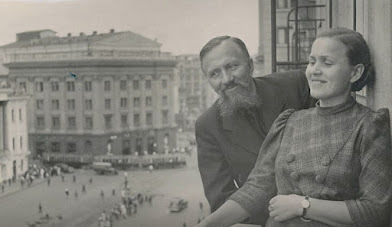
Salomėja Nėris (real name Salomėja Bačinskaitė-Bučienė) is the most important poet of the XX century Lithuanian literature (1904-1945).
Her poetry is called išpažintinę lyriką (literallyç confessional lyrics), i.e. intimistic poetry, in other words, a kind of poetry which is autobiographical, focused on real personal facts and with a low degree of fiction, Which could be linked to what can be called ego-documents: memoirs, diaries, letters.
The most common themes of her poetry are his land. her return to her beloved land (she lived in Russia since 1941), nature as a body that extends its reasons to her body, plants that flower or turn yellow, spring, winter. cold and frost, repentance, death. And winds, there are so many poems about wind in her poetry.
Here is a good example of her typical themes, the lyrics "diemedžiu žydėsiu"
Aš diemedžiu žydėsiu.
Ir vienąkart, pavasari,
Tu vėl atjosi drąsiai, -
O mylimas pavasari,
Manęs jau neberasi - -
Sulaikęs juodbėrį staiga,
Į žemę pažiūrėsi:
Ir žemė taps žiedais marga...
Aš diemedžiu žydėsiu- -
Unannouncedly arrives the Spring
And bravely arrive
My Beloved SpringBut you won't find me again...
Unannounced on a black steed
will look down upon the earth
suddenly coloured of flowers
And as an indistinct bush of Artemisia, I will bloom forever...[1]
The main theme of this poem is the unity of man and nature, The poet depicts death as the merging of life with nature to prolong the human days in the flowering of the plant. The eternity of the human being is to be found in the reason of nature.This ground theme is reminiscent of Lithuanian folklore motifs, which often talk about the transfer of the human soul to plants after death.In Lithuanian, the word for Artemisia is diemedis which has been probably chosen by Salomėja Nėris because it resembles Dievmedis, the divine tree,In English is more or less possible to repeat the same pun with dogwood and godwood.Salomėja has probably chosen this word to emphasize the fusion of man with divinity, with what is eternal. The poetess wants to dramatise also the eternity of this tie between Man and nature also by making use of the assonance between diemedis and Dievmedis.
[1] In the variegated flowering of the earth, the flowers of Artemisia are small, and indistinct like the likìmas, the destiny of man.On the concept of likìmas see https://princasvilniuje.blogspot.com/2022/04/non-e-un-bene-per-luono-che-divenga-cio.html
November 20, 2022
O mio Signore - E una memoria di Castiglion della Pescaia
 Presento qui, di nuovo, un capitoletto in fase di scrittura del mio nuovo romanzo in fieri "Essere mio padre"
Presento qui, di nuovo, un capitoletto in fase di scrittura del mio nuovo romanzo in fieri "Essere mio padre"Le vacanze ad agosto erano un punto fermo per Silvia.
Da anni ormai le faceva a Castiglion della Pescaia. Vi era andata negli anni in ricordo di un giorno che vi aveva passato da piccola, stregata per tutta la vita dalla bellezza di quel luogo, che era rimasta dentro di lei, come un penetrale intatto e impossibile da violare.
Castiglion della Pescaia era dove la madre aveva scattato la foto con il padre in maglietta rossa un giorno che da Marina di Castagneto Carducci, dove erano in vacanza, la prima vacanza della sua vita, avevano fatto un giro in macchina e vi si erano fermati per visitare la rocca di Castiglion della Pescaia appollaiato in alto sulla rupe...Si ricordava.
Ma quell’anno volle che fosse di nuovo Marina di Castagneto di Carducci. Il punto di partenza della sua vita. Su quelle ampie spiagge infatti era andata per la prima volta al mare che era piccolissima. Su quelle spiagge, incredibilmente ricordava, aveva imparato a camminare tra mille cadute in cui si era riempita la bocca di sabbia e di altrettanti mille pianti, ma alla fine ne era uscita vincitrice ed aveva imparato a camminare.
Soprattutto voleva far conoscere quel luogo a Rachele, la piccolina, che era la fotocopia di Silvia da piccola. Voleva trasmetterle le sue stesse sensazioni che lì su quelle spiagge aveva sperimentato molti anni prima per far sì che ancor di più somigliasse a lei.
Non poteva essere un caso che quell’anno avesse dentro di sé quel desiderio.
Doveva in qualche modo percorrere a ritroso il cammino fatto con suo padre, per capire meglio quello che aveva portato lei ad essere quello che era divenuta.
Si piaceva? Non lo sapeva. Di certo non si dispiaceva. C‘erano aspetti che non amava di se stessa. Ma alla fine nemmeno sapeva quali. Li intuiva quando per le circostanze del vivere le si imponevano. Ma poi li dimenticava.
Per esempio era troppo, eccessivamente, apprensiva per i suoi figli. Troppo dura con Alessandro. Troppo severa con le sue bimbe, come chiamava le bambine che allenava. Talora snobbava Claudia, non le dava importanza, soprattutto quando aveva momenti di depressione...ma alla fine non si dispiaceva. Si amava. Amava il suo corpo, amava il suo Sé. ma quel Sé che lei era divenuta come capirlo? Esisteva dentro di lei un luogo, che poteva dire: quella sono io? C‘era davvero dentro di lei quel Sé capace di spiegare a lei stessa quello che lei era? Quel Sé che come un punto, indistinguinile dal tutto, l‘aveva creata e senza il quale non sarebbe esistita? E se esisteva da dove veniva?
Era semplicemente questo quello che pensava distesa al sole, lontana dal lavoro, lontana dalla vita di ogni giorno, guardando le onde del mare scendere morbide verso la battigia e con un boccheggìo dolce poi scomparire ritraendosi e cercava con gli occhi la riga dell‘orizzonte in cui cielo e mare coincidevano e si annullavano unendosi, in un punto indistinguibile. Sotto quello stesso sole immisericordioso di tanti anni prima fra le braccia del padre aveva mirato in lontananza quella medesima linea di congiunzione e quel punto dove il tutto si rivelava. E ora era di nuovo lì, quarantanni dopo.
E i giorni avevano preso a passare pigri, come il sale e il sole che sulla pelle scivolavano lenti e tuttavia lenivano il dolore degli ultimi due anni passati in cattività.
In lontananza dal bar suonava una canzone
O mio Signore
In questo mondo
Io non ho avuto tanto
Eppure sono contento...
Ascoltò meglio, conosceva quella canzone
O mio Signore
Io ti ringrazio
In ogni cosa che ho avuto
Grazie per tutto quello
Che tu hai fatto per me...
Era una canzone che conosceva e aveva sentito da piccola. Chi la cantava?
Mamma che fai? Rachele si era avvicinata. Aveva smesso di fare le buche nella rena. Teneva in una mano un secchiello colmo d’acqua e nell’altra una paletta. Aveva in testa un fazzoletto annodato e la bocca tutta sporca di sabbia.
Silvia la guardò. Dio mio, ma tu...
Io che mamma?
Tu... (tu sei me! – stava per dire)
Tu hai la bocca tutta sporca di rena...rimediò.
Sono caduta mamma. Ti ho chiamato ma non mi hai risposto.
Rachele...non ti ho sentito. Scusami. Mi sono distratta, ascoltavo quella canzone...
Che canzone?
Quella musica che viene dal bar...
Ma non c’era nessuna musica mamma.
Ma che dici? Io ho sentito una canzone.
Mamma ti sbagli. Ascolta.
Ascoltò. E sentì solo lo sciacquio delle onde sulla riva, qualche grido di gabbiani, un bambino che urlava e il sole che bruciava la pelle e labrezza che asciugava la pelle imperlata leggermente di sudore.

